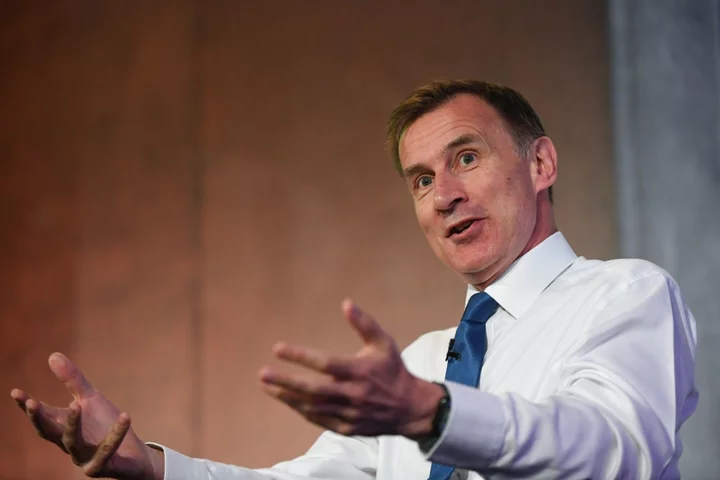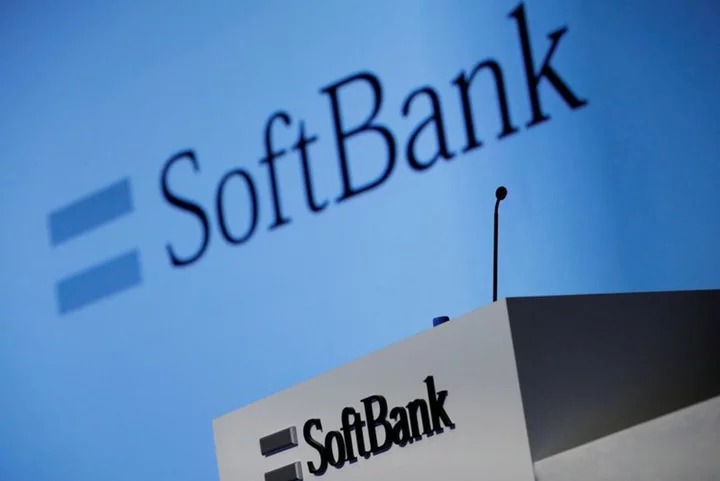Chancellor Jeremy Hunt reiterated the UK government’s pledge to halve inflation this year, saying pressures on household budgets will soon begin to ease.
Hunt released a statement ahead of Parliament’s return on Monday. He said adhering to he plans of Prime Minister Rishi Sunak’s administration to tackle inflation was the best way forward.
Read more: Why UK Inflation Is So High and Tough to Bring Down
In its August monetary policy report, the Bank of England said inflation was falling but “still too high.” The central bank looks for annualized inflation at about 5% by year-end, far above its 2% target.
The UK’s inflation rate was 6.8% in the year through July and has receded from double-digit levels. The nation’s economy grew by 0.5% in June, beating forecasts.
“As we move into autumn, I know family budgets are still stretched, but inflation is coming down and now is the time to see the job through,” Hunt said. “We are on track to halve inflation this year and by sticking to our plan we will ease the pressure on families and businesses alike.”
Read more: Britain’s Food Inflation Cools to Lowest Level in Almost a Year
August saw the slowest increase in UK grocery bills in almost a year as shop price inflation fell to 6.9% from 7.6% in July, according to the British Retail Consortium. That’s after grocery bills earlier this year rose at their fastest pace in more than four decades.
The slowdown offers hope that the squeeze on households may pass soon. Food and energy prices sparked the current round of inflation starting in 2021, but more recently it’s broader services and rising pay that’s been driving prices higher.
Read more: Window Opens for Brits to Lock in Cheaper Energy as Prices Drop
UK wage growth accelerated to the strongest pace on record, adding to concerns that a tight labor market is feeding inflation and will be harder to reverse. Average earnings excluding bonuses rose 7.8% in the three months through June compared with a year ago, the highest since records began in 2001.
Hunt also emphasized the need to keep government spending under control.
Evidence suggests that £25 billion ($31.5 billion) in additional borrowing “could push up interest rates by as much as 0.5%, reinforcing the need to carefully manage public sector spending,” according to his statement.









